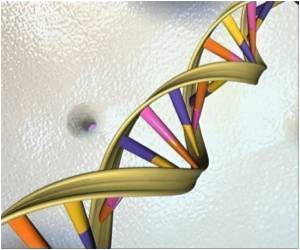
The findings illustrate the strength of combining the detailed biochemical examination of patients with the large-scale methods of analysing our genetic makeup that have recently become available, in order to expose new mechanisms behind congenital diseases. Modern tools of genetic analysis make it considerably easier to identify the damage responsible for hereditary diseases, which is essential if the affected families are to receive correct information about their disease. It is also a critical first step towards the development of new therapies.
The newly discovered disease, adenosine kinase deficiency, sheds light on an unexpected functional link between two known metabolic processes: the methionine cycle and adenosine/AMP metabolism, thus revealing a previously unknown pathogenetic mechanism. The study was led by Dr Anna Wedell, Professor at the Department of Molecular Medicine and Surgery, Karolinska Institute. Dr Wedell is also affiliated to Centre for Inherited Metabolic Diseases at the Karolinska University Hospital, the Center for Molecular Medicine, and the Science for Life Laboratory in Stockholm.
Source-Eurekalert









